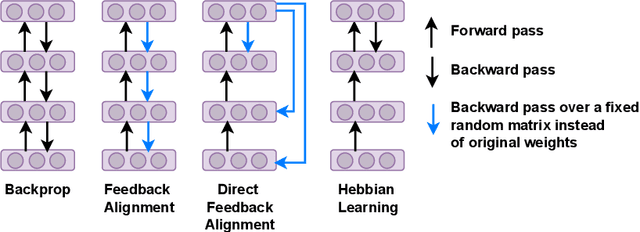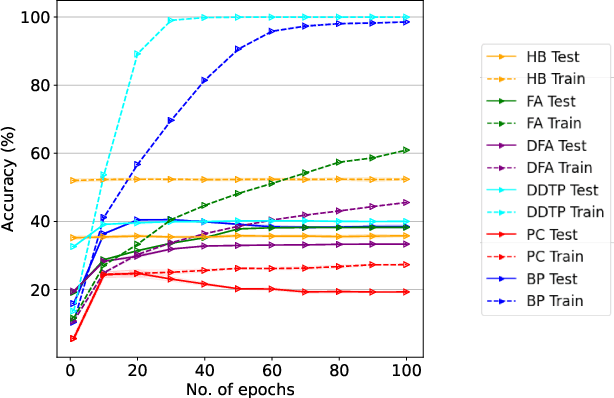Is Bio-Inspired Learning Better than Backprop? Benchmarking Bio Learning vs. Backprop
Paper and Code
Dec 09, 2022



Bio-inspired learning has been gaining popularity recently given that Backpropagation (BP) is not considered biologically plausible. Many algorithms have been proposed in the literature which are all more biologically plausible than BP. However, apart from overcoming the biological implausibility of BP, a strong motivation for using Bio-inspired algorithms remains lacking. In this study, we undertake a holistic comparison of BP vs. multiple Bio-inspired algorithms to answer the question of whether Bio-learning offers additional benefits over BP, rather than just biological plausibility. We test Bio-algorithms under different design choices such as access to only partial training data, resource constraints in terms of the number of training epochs, sparsification of the neural network parameters and addition of noise to input samples. Through these experiments, we notably find two key advantages of Bio-algorithms over BP. Firstly, Bio-algorithms perform much better than BP when the entire training dataset is not supplied. Four of the five Bio-algorithms tested outperform BP by upto 5% accuracy when only 20% of the training dataset is available. Secondly, even when the full dataset is available, Bio-algorithms learn much quicker and converge to a stable accuracy in far lesser training epochs than BP. Hebbian learning, specifically, is able to learn in just 5 epochs compared to around 100 epochs required by BP. These insights present practical reasons for utilising Bio-learning rather than just its biological plausibility and also point towards interesting new directions for future work on Bio-learning.
 Add to Chrome
Add to Chrome Add to Firefox
Add to Firefox Add to Edge
Add to Edge